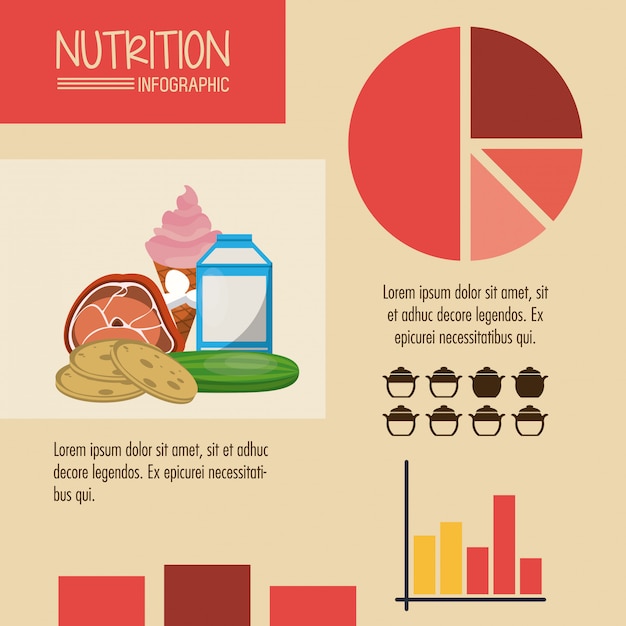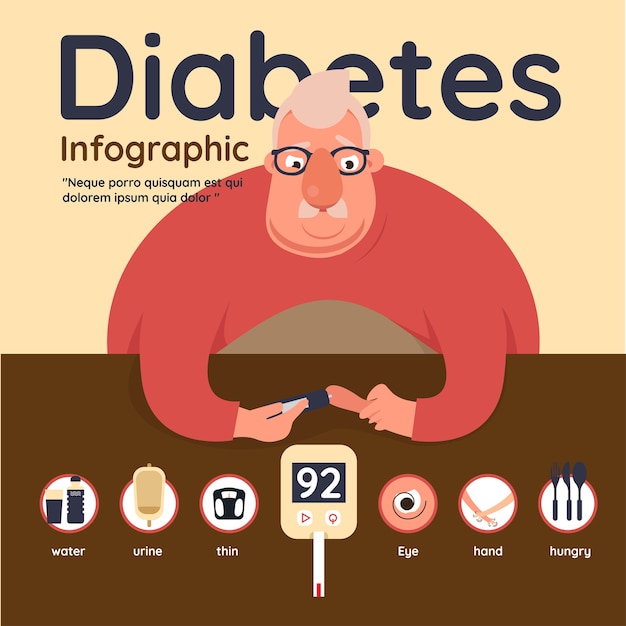Keto Diet for Diabetics: Benefits, Risks & Safety Analysis

The ketogenic diet can offer potential benefits for people with diabetes, such as improved blood sugar control and weight loss, but it also poses risks like ketoacidosis and hypoglycemia, necessitating careful monitoring and medical supervision.
Is the keto diet safe for people with diabetes? A comprehensive analysis of risks and benefits reveals a complex answer. While keto can offer advantages, understanding the potential downsides is crucial.
Understanding the Ketogenic Diet
The ketogenic diet, or keto diet, has gained widespread popularity as a weight-loss strategy and is often discussed as a potential dietary approach for managing diabetes. It’s essential to understand what this diet entails before evaluating its safety and effectiveness for individuals with diabetes.
What is the Keto Diet?
The keto diet is a very low-carbohydrate, high-fat diet that forces the body to switch its primary fuel source from glucose (derived from carbohydrates) to ketones (derived from fat). This metabolic state, known as ketosis, occurs when carbohydrate intake is severely restricted, typically to less than 50 grams per day.
When carbohydrate intake is limited, the body’s glycogen stores are depleted, and the liver begins to break down fat into fatty acids and ketones. These ketones then become the primary energy source for the brain, muscles, and other tissues. Essentially, the keto diet mimics the metabolic state of fasting, where the body relies on fat for fuel.

- Macronutrient Ratios: A typical keto diet consists of approximately 70-80% of calories from fat, 20-25% from protein, and only 5-10% from carbohydrates.
- Food Choices: Keto-friendly foods include meats, poultry, fish, eggs, full-fat dairy products, non-starchy vegetables (like leafy greens, broccoli, and cauliflower), avocados, nuts, and seeds. Foods to avoid include grains, legumes, starchy vegetables (like potatoes and corn), fruits, sugary drinks, and processed foods high in carbohydrates.
- Ketone Monitoring: Individuals following a keto diet can monitor their ketone levels using urine strips, blood ketone meters, or breath analyzers. This helps ensure they are in ketosis.
This metabolic shift can have several effects on the body, including weight loss, improved blood sugar control, and potential benefits for various health conditions. However, it also requires careful planning and monitoring, especially for individuals with pre-existing medical conditions like diabetes.
Potential Benefits of the Keto Diet for Diabetes
For individuals with diabetes, the keto diet has shown promise in several key areas. These potential benefits stem from the diet’s ability to impact blood sugar levels and insulin sensitivity.
Improved Blood Sugar Control
One of the most appealing aspects of the keto diet for people with diabetes is its potential to improve blood sugar control. By drastically reducing carbohydrate intake, the diet can help to stabilize blood glucose levels and reduce the need for medication.
When carbohydrates are consumed, they are broken down into glucose, which enters the bloodstream and raises blood sugar levels. In individuals with diabetes, the body either doesn’t produce enough insulin (type 1 diabetes) or doesn’t use insulin effectively (type 2 diabetes) to transport glucose into cells for energy. This leads to elevated blood sugar levels.
- Reduced Glucose Spikes: By limiting carbohydrates, the keto diet can minimize glucose spikes after meals, helping to maintain more stable blood sugar levels throughout the day.
- Lower A1C Levels: Studies have shown that the keto diet can lead to a significant reduction in hemoglobin A1C (HbA1c) levels, which is a measure of average blood sugar control over the past 2-3 months.
- Decreased Medication Needs: Some individuals with diabetes who follow a keto diet may be able to reduce or even eliminate their need for blood sugar-lowering medications, under the guidance of their healthcare provider.
Weight Loss and Insulin Sensitivity
The keto diet has also been shown to promote weight loss, which can have a positive impact on insulin sensitivity. Excess weight, particularly around the abdomen, is often associated with insulin resistance, a condition where the body’s cells become less responsive to insulin.
When insulin resistance is reduced, the body is better able to use insulin effectively, which can lead to improved blood sugar control and a reduced risk of complications associated with diabetes.
By promoting weight loss and improving insulin sensitivity, the keto diet may help to address some of the underlying metabolic issues that contribute to diabetes. However, it’s important to note that these benefits may not be sustained long-term without careful adherence to the diet and a healthy lifestyle.
Risks and Potential Complications
While the keto diet offers potential benefits for people with diabetes, it’s crucial to be aware of the associated risks and potential complications. These risks can be more pronounced in individuals with diabetes, requiring careful monitoring and medical supervision.
Ketoacidosis and Euglycemic Diabetic Ketoacidosis (eDKA)
Ketoacidosis is a serious condition that can occur when the body produces high levels of ketones, leading to an imbalance in blood pH. While ketoacidosis is more commonly associated with type 1 diabetes, it can also occur in people with type 2 diabetes who are following a ketogenic diet.
When ketone levels become excessively high, the blood becomes acidic, which can lead to a range of symptoms, including nausea, vomiting, abdominal pain, dehydration, rapid breathing, and confusion. In severe cases, ketoacidosis can be life-threatening and requires immediate medical attention.

Euglycemic diabetic ketoacidosis (eDKA) is a particularly concerning risk for individuals with diabetes who are taking sodium-glucose cotransporter 2 (SGLT2) inhibitors, a class of medications used to lower blood sugar. These medications can increase the risk of ketoacidosis even when blood sugar levels are within a normal range, making it difficult to detect the condition.
- Individuals on SGLT2 inhibitors and following a keto diet should be particularly vigilant for symptoms of ketoacidosis, even if their blood sugar levels appear normal.
- Regular monitoring of ketone levels and close communication with a healthcare provider are essential to prevent and manage this potentially dangerous complication.
- eDKA can develop rapidly and requires prompt medical intervention to correct the acid-base imbalance and prevent serious consequences.
Hypoglycemia
Hypoglycemia, or low blood sugar, is another potential risk for people with diabetes who are following a keto diet, particularly those who are taking insulin or other blood sugar-lowering medications. When carbohydrate intake is restricted, blood sugar levels can drop too low, leading to symptoms such as shakiness, sweating, dizziness, confusion, and even loss of consciousness.
Individuals with diabetes who are on a keto diet should work closely with their healthcare provider to adjust their medication dosages as needed to prevent hypoglycemia. Regular monitoring of blood sugar levels and carrying a source of fast-acting carbohydrates (such as glucose tablets or juice) are also important precautions.
Who Should Avoid the Keto Diet?
While the keto diet may offer benefits for some people with diabetes, it’s not appropriate for everyone. Certain individuals with diabetes should avoid the keto diet altogether due to potential risks and complications.
Type 1 Diabetes and Ketoacidosis Risk
Individuals with type 1 diabetes are at a higher risk of developing ketoacidosis on a ketogenic diet compared to those with type 2 diabetes. This is because people with type 1 diabetes have an absolute deficiency of insulin, which can lead to uncontrolled ketone production and a rapid onset of ketoacidosis.
While some individuals with type 1 diabetes may be able to safely follow a modified keto diet under close medical supervision, it’s generally not recommended due to the increased risk of ketoacidosis. Careful monitoring of blood sugar and ketone levels, as well as frequent communication with a healthcare provider, are essential for those with type 1 diabetes who choose to pursue a ketogenic diet.
The decision to follow a keto diet should be made in consultation with a healthcare team experienced in managing diabetes. Open communication about potential risks and benefits is crucial to ensure safety and well-being.
- People with type 1 diabetes should closely monitor their blood sugar and ketone levels, especially during the initial stages of the ketogenic diet.
- They should also be aware of the symptoms of ketoacidosis and seek immediate medical attention if they experience any concerning symptoms.
- Adjustments to insulin dosages may be required to prevent both ketoacidosis and hypoglycemia.
Other Medical Conditions
In addition to type 1 diabetes, certain other medical conditions may make the keto diet unsuitable for some individuals. These conditions include kidney disease, liver disease, pancreatitis, and certain metabolic disorders. The keto diet can put additional stress on these organs, potentially worsening the underlying condition.
Pregnant or breastfeeding women should also avoid the keto diet, as it may not provide the necessary nutrients for fetal development or lactation. Additionally, individuals with a history of eating disorders may be at risk of developing unhealthy eating patterns while following a restrictive diet like keto.
Before starting a keto diet, it’s essential to discuss any pre-existing medical conditions with a healthcare provider to determine if it’s a safe and appropriate dietary approach. A registered dietitian can also provide personalized guidance and support to help ensure nutritional adequacy and minimize potential risks.
Practical Considerations and Monitoring
If you’re considering the keto diet as a management strategy for diabetes, several practical considerations and monitoring steps should be taken to ensure safety and effectiveness. These steps include regular monitoring of blood sugar and ketone levels, as well as working closely with a healthcare team.
Blood Sugar and Ketone Monitoring
Regular monitoring of blood sugar and ketone levels is essential for individuals with diabetes who are following a keto diet. This allows for early detection of potential complications such as ketoacidosis or hypoglycemia.
Blood sugar levels should be checked multiple times throughout the day, especially before and after meals, before bedtime, and after exercise. Ketone levels can be monitored using urine strips, blood ketone meters, or breath analyzers. Urine strips are the least expensive but also the least accurate method, while blood ketone meters provide more precise measurements.
The frequency of monitoring may vary depending on individual circumstances and the type of diabetes medication being used. Your healthcare provider can provide specific recommendations on how often to check blood sugar and ketone levels. It’s also important to keep a record of your blood sugar and ketone readings to share with your healthcare team.
This data can help guide medication adjustments and dietary modifications to optimize blood sugar control and minimize the risk of complications.
- Individuals should be educated on how to properly use blood sugar and ketone monitoring devices.
- They should also be aware of target ranges for blood sugar and ketone levels.
- Prompt action should be taken if blood sugar or ketone levels are outside of the recommended range.
Working with a Healthcare Team
If you’re considering following a keto diet for diabetes management, it’s crucial to work closely with a healthcare team that includes a physician, registered dietitian, and certified diabetes educator. These professionals can provide personalized guidance and support to help you safely and effectively manage your diabetes while following a keto diet.
Your physician can assess your overall health status, review your medical history, and determine if the keto diet is appropriate for you. They can also monitor your kidney function, liver function, and lipid levels to ensure that the diet is not negatively impacting these parameters. Additionally, they can adjust your diabetes medication dosages as needed to prevent hypoglycemia or ketoacidosis.
Long-Term Sustainability and Lifestyle Integration
While the keto diet may offer short-term benefits for people with diabetes, it’s essential to consider the long-term sustainability and lifestyle integration of this dietary approach. Adherence to the keto diet can be challenging, and it may not be suitable for everyone in the long run.
Adherence and Dietary Variety
The restrictive nature of the keto diet can make it difficult to adhere to long-term. Limiting carbohydrate intake to less than 50 grams per day requires significant dietary changes and careful meal planning. Many commonly consumed foods, such as grains, fruits, legumes, and starchy vegetables, are restricted on the keto diet.
This can lead to a lack of dietary variety and potential nutrient deficiencies. In order to maintain adequate nutrient intake, it’s important to focus on consuming a wide variety of keto-friendly foods, such as non-starchy vegetables, healthy fats, and protein sources. Additionally, some individuals may benefit from taking vitamin and mineral supplements to address potential deficiencies.
A registered dietitian can provide guidance on meal planning and supplement recommendations to ensure nutritional adequacy while following a keto diet. They can also help you develop strategies for managing cravings and avoiding common pitfalls that can lead to dietary lapses.
The lack of dietary variety and potential nutrient deficiencies are important considerations for individuals with diabetes who are contemplating a keto diet, and it’s essential to work with a healthcare team to address these concerns.
- Individuals should focus on consuming a variety of non-starchy vegetables, healthy fats, and protein sources.
- They should also be aware of potential nutrient deficiencies, such as vitamin D, calcium, and magnesium.
- Supplementation may be necessary to address these deficiencies.
Lifestyle Integration
Integrating the keto diet into your lifestyle can also be challenging, particularly when eating out, traveling, or attending social events. Many restaurant dishes are high in carbohydrates, making it difficult to find keto-friendly options.
Planning ahead and packing your own meals and snacks can help you stay on track while on the go. Additionally, it’s important to communicate your dietary needs with friends and family members, so they can support you in your keto journey.
| Key Point | Brief Description |
|---|---|
| 🩸 Blood Sugar Control | Keto can improve blood sugar but needs careful monitoring. |
| ⚠️ Risks | Includes ketoacidosis and hypoglycemia. Medical supervision is essential. |
| 🩺 Medical Team | Work with a physician and dietitian for personalized guidance. |
| 🍎 Sustainability | Long-term adherence requires careful meal planning and variety. |
Frequently Asked Questions
▼
No, the keto diet is not safe for all individuals with diabetes. Type 1 diabetics and those with kidney or liver issues should avoid it due to increased health risks.
▼
The keto diet typically lowers blood sugar levels by limiting carb intake, which reduces glucose spikes. Regular monitoring is crucial to avoid hypoglycemia.
▼
The main risks include ketoacidosis, especially euglycemic DKA with SGLT2 inhibitors, and hypoglycemia. Close medical supervision is essential to manage these risks.
▼
Ketone levels should be monitored regularly, particularly when starting keto or if you experience symptoms of ketoacidosis. Use urine strips or blood ketone meters.
▼
Yes, the keto diet may improve insulin sensitivity through weight loss and reduced carb intake, enhancing the body’s response to insulin and aiding blood sugar control.
Conclusion
In conclusion, the ketogenic diet presents a complex array of potential benefits and risks for individuals with diabetes. While it may offer improved blood sugar control and weight loss, the risks of ketoacidosis and hypoglycemia necessitate careful medical supervision and monitoring. Therefore, any decision to adopt a keto diet should involve thorough consultation with a healthcare team and a comprehensive understanding of its implications.
